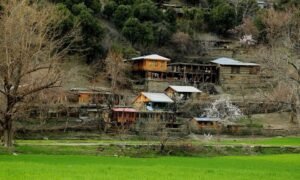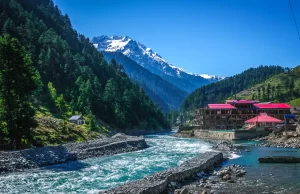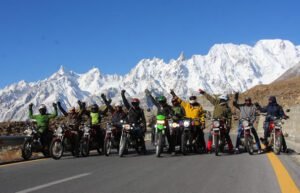Pakistan, a country rich in natural beauty, diverse cultures, and historical significance, has been gaining popularity as a tourist destination. However, potential visitors often have safety concerns. Our in-depth analysis tackles key safety concerns and delivers the latest insights on Pakistan’s tourism landscape for 2024.
This guide offers a current and thorough assessment of tourist safety in Pakistan for 2024, addressing common concerns and providing the latest information.
Understanding Safety for Tourism in Pakistan
In recent years, Pakistan has made significant strides in improving tourist security and infrastructure. Government initiatives have significantly improved visitor safety, resulting in a markedly more stable environment throughout the country. It’s important to note that as of 2024, Pakistan’s atmosphere is generally calm, allowing tourists to explore its myriad attractions with peace of mind.

Current Travel Advisories and Government Recommendations
As of 2024, many countries have relaxed their travel advisories for Pakistan. The United States Department of State, for instance, has upgraded Pakistan to a Level 3 (“Reconsider Travel”) advisory, with some areas at Level 4 (“Do Not Travel”). However, popular tourist destinations are generally considered safe for visitors.
The United Kingdom’s Foreign, Commonwealth & Development Office (FCDO) has also updated its advice, noting improvements in the security situation across Pakistan. They advise against travel to certain border regions but consider most tourist areas safe with proper precautions.
Tourists must check their home countries’ most recent travel advisories before planning a trip. These advisories are regularly updated to reflect the current situation on the ground.
Safety in Major Tourist Destinations
Pakistan’s major tourist destinations have seen significant improvements in security measures. Cities like Lahore, Islamabad, and Karachi, as well as popular regions such as Gilgit-Baltistan and the Hunza Valley, are safe for tourists.
Lahore, known for its rich Mughal heritage, has enhanced security around major attractions like the Badshahi Mosque and Lahore Fort. Islamabad, the capital city, is considered one of the safest areas in the country, with a strong police presence and modern infrastructure.
The northern areas, including Gilgit-Baltistan, Hunza, and Skardu, are particularly popular among adventure tourists and nature enthusiasts. These regions have seen a significant increase in tourism infrastructure and safety measures. Local communities in these areas are known for their hospitality and are often crucial in ensuring tourists’ safety.
Transportation Safety: Getting Around Pakistan
Transportation safety in Pakistan has improved considerably. A network of well-maintained highways connects major cities, and domestic air travel is reliable and safe. However, choosing reputable transportation providers and exercising caution is essential, especially when traveling by road.
Domestic flights operated by Pakistan International Airlines (PIA) and private carriers like Airblue and Serene Air are recommended for long-distance travel. These airlines adhere to international safety standards and have good safety records.
When using road transport, opt for official taxi services or reputable car rental companies. Ride-hailing apps like Careem and Uber are widely available and considered safe in cities. For intercity travel, consider using well-established bus services like Daewoo Express or Faisal Movers, which have a good reputation for safety and comfort.

Train travel, while offering scenic routes, may have variable safety standards. The Karachi to Peshawar main line (ML-1) is generally considered safe and offers an interesting way to see the country.
Cultural Sensitivity and Local Customs
Understanding and respecting local customs is crucial for a safe and enjoyable trip to Pakistan. The country has a predominantly Muslim population, and observing cultural norms can help avoid misunderstandings and ensure a positive interaction with locals.
Some key points to remember:
- When exploring religious sites or countryside locations, opt for conservative attire to show respect for local customs.
- Public displays of affection are generally frowned upon.
- During Ramadan, be mindful of eating, drinking, or smoking in public during daylight hours.
- Always ask permission before photographing people, especially women.
- Respect local customs regarding gender segregation in certain areas.
By respecting local traditions, tourists ensure their safety and often experience warm hospitality from Pakistani people, who are known for their generosity towards guests.
Health and Medical Considerations
While Pakistan’s healthcare system varies in quality, major cities have well-equipped hospitals capable of handling most medical emergencies. However, it’s crucial to take certain precautions:
- Travel insurance: Obtain comprehensive travel insurance that covers medical evacuation.
- Vaccinations: Consult your healthcare provider about recommended vaccinations before travel.
- Food and water safety: Drink bottled water and be cautious with street food, especially at the beginning of your trip.
- Altitude sickness: If traveling to high-altitude areas like Gilgit-Baltistan, be aware of the symptoms of altitude sickness and acclimatize properly.
In medical emergencies, major hospitals in cities like Karachi, Lahore, and Islamabad are equipped to handle most situations. Some recommended hospitals include Aga Khan University Hospital in Karachi, Shaukat Khanum Memorial Cancer Hospital in Lahore, and Shifa International Hospital in Islamabad.

Tips for Safe Tourism in Pakistan
To ensure a safe and enjoyable trip to Pakistan, consider the following tips:
- Remain vigilant: Regularly check local news outlets and official travel advisories for the latest updates.
- Register with your embassy: Inform your country’s embassy of your travel plans.
- Respect local customs: Dress modestly and be mindful of cultural sensitivities.
- Use reputable tour operators: Consider joining organized tours, especially for visits to remote areas.
- Learn basic Urdu phrases: Knowing a few local words can be helpful and is often appreciated by locals.
- Keep important documents safe: Carry copies of your passport and digital backups.
- Stay connected: Obtaining a local provider’s mobile SIM card enhances your connectivity.
- Be cautious with photography: Always ask permission before taking photos, especially of people or sensitive areas.
Essential Safety Gear and Precautions
When traveling in Pakistan, particularly in rural or mountainous areas, consider carrying:
- A first-aid kit with basic medications
- Sunscreen and insect repellent
- A reliable map or GPS device
- A portable charger for your electronic devices
- Water purification tablets or a water filter
- Appropriate clothing for various weather conditions, especially if trekking
Click Here to Learn More about the 10 Hunza Treks.
In conclusion, while it’s natural to have safety concerns when traveling to any new destination, in 2024, Pakistan offers tourists a largely safe and welcoming environment. The country’s diverse landscapes, rich history, and warm hospitality make it an increasingly attractive destination for travelers seeking unique experiences.

Visitors can confidently enjoy Pakistan’s myriad attractions by staying informed, respecting local customs, and taking standard travel precautions. To facilitate seamless communication, acquire a SIM card from a local mobile network provider.
Remember, the overall atmosphere across Pakistan is calm, allowing tourists to visit its many worthwhile places with peace of mind. As always, thorough research and proper planning are key to a safe and memorable journey in this fascinating country.


Recent Comments